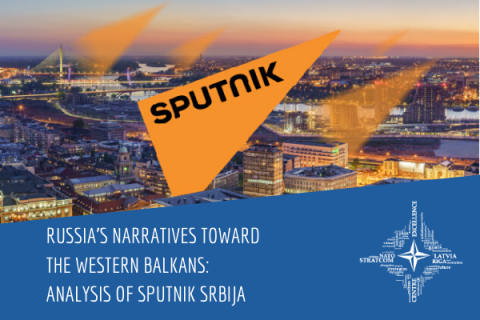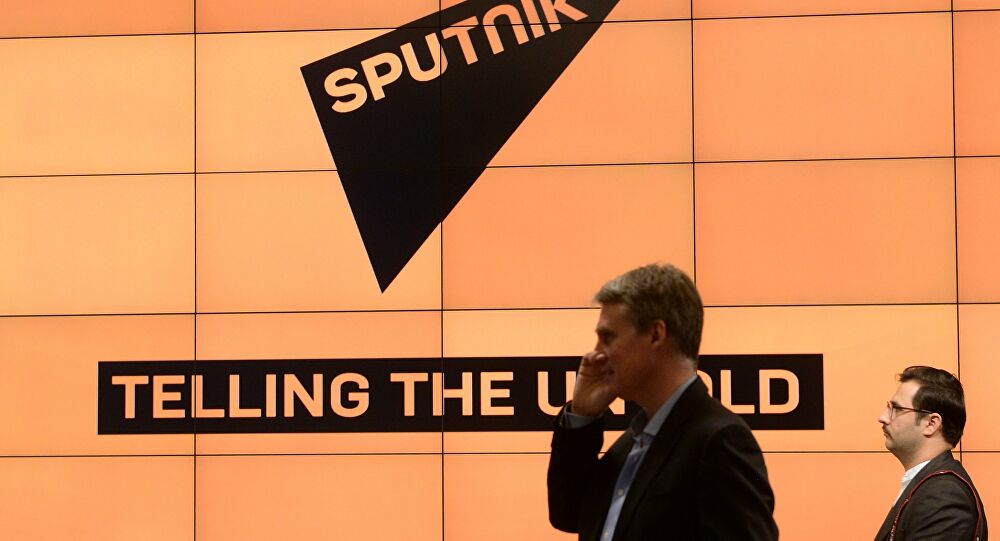The project Russia’s Footprint in the Western Balkan Information Environment, published by NATO Stratcom Centre of Excellence, investigates Russia’s tools of influence in the Western Balkans (WB), with a focus on the media landscape. The scope of analysis is Russia’s activities in Albania, Bosnia and Herzegovina, Kosovo, North Macedonia, Montenegro, and Serbia. The project analyses Russia’s interests and influence toolbox, as well as identifies the vulnerabilities that make the Western Balkan countries susceptible to hostile influence.
It also identifies the Kremlin’s narratives in the WB as well as looks at the role of local WB media in spreading those narratives. The project consists of 4 reports, and one of them – Russia’s Narratives toward the Western Balkans, Analysis of Sputnik Serbia, was done by the Digital Forensic Center.
Russian narratives in the Western Balkans
This report provides a comprehensive analysis of the content of the Kremlin-sponsored Sputnik online news website in Serbian (Sputnik Srbija). It is aimed at understanding the narratives Russia is promoting about six Western Balkan countries, the EU, and NATO.

Sputnik has been recognized as one of the main channels of Russian influence in the Western Balkan media space. It has the potential to reach audiences that speak BCMS (Bosnian-Croatian-Montenegrin-Serbian) languages in several countries in the region and its content is republished by local media.
The report is based on analysis of a year-long monitoring process that lasted from January 1 to December 31, 2018. The authors analysed 7,193 articles about Albania, Bosnia and Herzegovina, Kosovo, Montenegro, North Macedonia and Serbia, as well as the EU and NATO.
The report identifies several narratives promoted by Sputnik Srbija:
- The WB region is a playground for a clash of interests between East and West
- The WB region is unstable and there is a high potential for conflict
- The EU is hegemonic
- WB countries are weak, incapable, and corrupt
- Human rights are endangered
- The EU and NATO are weak and not united
- NATO is aggressive and provocative
- Montenegro is seeking to rewrite history
- NATO is not beneficial
The analysis demonstrates that Sputnik tries to emphasize that the region is divided into pro-Western and pro-Eastern sides. The narratives encourage feelings of unease, insecurity, and worry in the region. The Western Balkans are presented as the next place of confrontation between NATO and Russia, with the six countries seen as having to pick sides sometime in future.
The countries that are close to the West, such as Montenegro, Albania, and North Macedonia, are described as losing their sovereignty to Western influence. They are portrayed as corrupt, crime-ridden and disrespectful of minority rights. Meanwhile, Serbia is continually presented as an economic success story in the region.
While the EU is portrayed as hegemonic and meddling in regional dialogues, NATO is depicted as aggressive and provocative toward Serbia and Russia.
Russia is presented as the protector of Kosovo Serbs, while the West is described as supporting Kosovo Albanians. Russia is also described as a military power that scares NATO, and at the same time victim of NATO’s aggression.

